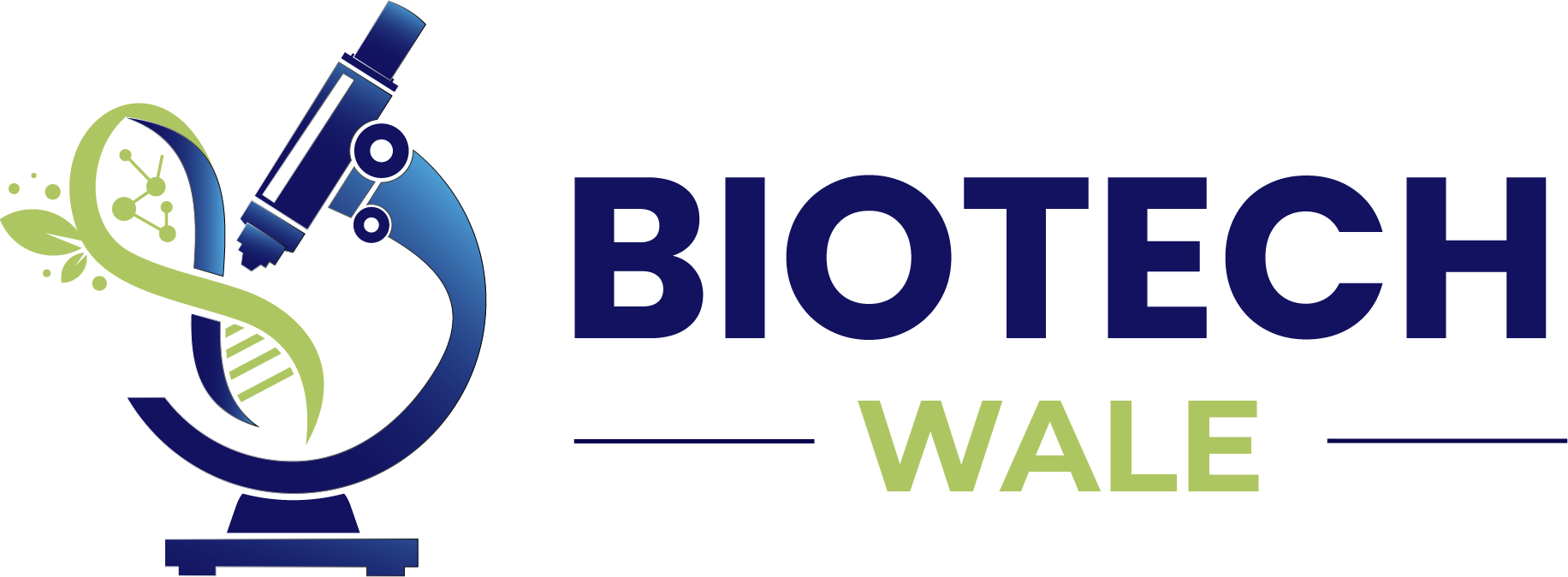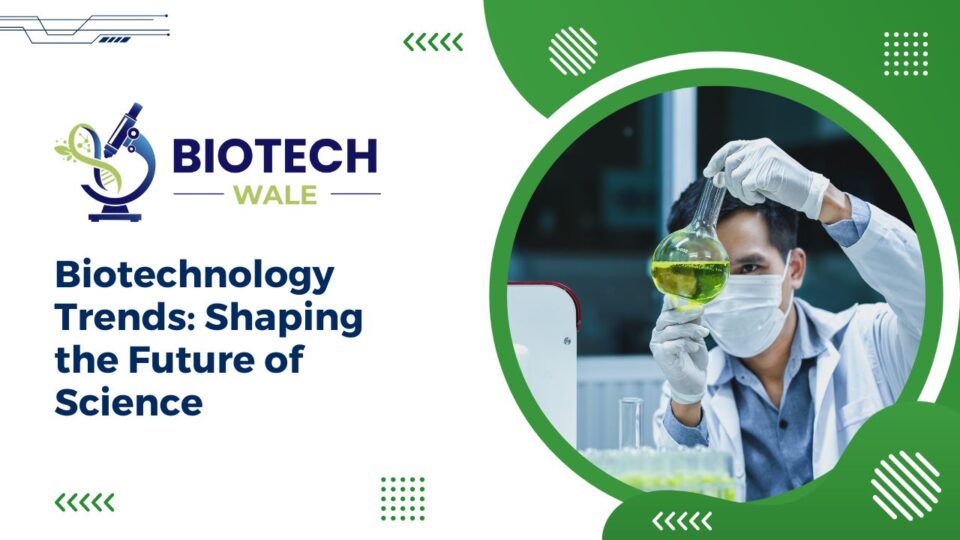Introduction to Biotechnology
Welcome to the exciting world of biotechnology, where science fiction meets reality! From gene editing to personalized medicine, the field of biotech is rapidly evolving and shaping the future of science as we know it. Join us on a journey through the key trends, societal impacts, ethical considerations, and career opportunities that make biotechnology a driving force in innovation. Let’s dive in and explore how this dynamic field is revolutionizing the way we live, work, and interact with our environment.
Key Trends in Biotechnology:
In the fast-paced world of biotechnology, several key trends are shaping the future of science. Gene editing and CRISPR technology have revolutionized genetic engineering by allowing precise modifications to DNA sequences. This breakthrough has immense potential in treating genetic diseases and creating genetically modified organisms for various purposes.
Synthetic biology is another trend gaining momentum, where researchers design and construct biological parts to create new functions not found in nature. Personalized medicine is also on the rise, tailoring medical treatments to individual characteristics like genetics or lifestyle factors.
Bioinformatics and big data play a crucial role in analyzing vast amounts of biological data efficiently, leading to groundbreaking discoveries. Agricultural biotechnology continues to enhance crop yield, pest resistance, and overall sustainability in farming practices. These trends collectively drive innovation and progress within the field of biotechnology, paving the way for exciting advancements ahead.
Gene Editing and CRISPR Technology
Gene editing and CRISPR technology have revolutionized the field of biotechnology, allowing scientists to make precise changes to DNA. This cutting-edge technology has the potential to treat genetic disorders, develop new therapies, and even improve crop yields. By using CRISPR-Cas9, researchers can target specific genes and modify them with unprecedented accuracy.
The ability to edit genes raises ethical concerns about designer babies and unintended consequences. However, the promise of curing diseases like cancer or sickle cell anemia is a compelling reason for further exploration in this field. The potential applications of gene editing are vast, ranging from agriculture to medicine.
As research in gene editing progresses, regulations and guidelines need to keep pace with technological advancements. Ensuring that these powerful tools are used responsibly is crucial for harnessing their full potential in shaping the future of science.
Synthetic Biology
Synthetic biology is revolutionizing the way we approach the manipulation of biological systems. By designing and constructing new biological parts, devices, and systems, scientists are creating innovative solutions to complex problems.
One of the key aspects of synthetic biology is its interdisciplinary nature, bringing together experts from various fields such as biology, engineering, computer science, and chemistry. This collaborative effort allows for the development of novel technologies with a wide range of applications.
Through synthetic biology techniques, researchers can engineer microorganisms to produce valuable compounds like biofuels or pharmaceuticals more efficiently than traditional methods. This has incredible potential to positively impact industries ranging from healthcare to environmental sustainability.
As technology continues to advance in this field, we can anticipate even more exciting developments that will further shape the future of biotechnology. Synthetic biology holds promise for addressing global challenges and driving innovation in ways we have yet to imagine.
Personalized Medicine
Personalized medicine is revolutionizing the way we approach healthcare, tailoring treatments to individuals based on their genetic makeup and specific needs. By analyzing a person’s genes, lifestyle, and environment, personalized medicine aims to provide more effective and targeted therapies for various diseases.
This approach allows for treatments that are not only more precise but also potentially safer with fewer side effects. Rather than using a one-size-fits-all model, personalized medicine takes into account the unique characteristics of each patient to deliver better outcomes.
Advancements in technology have made it possible to sequence an individual’s genome quickly and cost-effectively, opening up new possibilities for personalized treatments. By understanding how genetics influence disease susceptibility and response to treatment, healthcare providers can offer more tailored interventions that improve patient care.
In the future, personalized medicine has the potential to transform healthcare by shifting focus from reactive treatments to proactive prevention strategies. As our understanding of genomics continues to grow, so too will the opportunities for personalized medicine to make a significant impact on improving health outcomes.
Bioinformatics and Big Data
Bioinformatics and Big Data play a crucial role in the field of biotechnology. By utilizing advanced computational tools, scientists can analyze vast amounts of biological data to uncover valuable insights. This integration of biology, computer science, and information technology has revolutionized how we understand complex biological systems.
The ability to process large datasets allows researchers to identify genetic patterns, predict disease outcomes, and even develop personalized treatment plans for patients. With the help of bioinformatics, scientists can decipher the intricacies of DNA sequences and unlock the secrets hidden within our genes.
Big data analytics in biotechnology enable us to make more informed decisions about drug development, agricultural practices, and environmental conservation efforts. The sheer volume of information available empowers us to tackle some of the most pressing challenges facing society today.
As technology continues to advance, we can expect even greater breakthroughs in bioinformatics and big data analysis. The possibilities are truly limitless as we harness the power of data-driven innovation in shaping the future of science.
Agricultural Biotechnology
Agricultural biotechnology is revolutionizing the way we grow food. Through genetic modification, scientists are developing crops that are more resistant to pests and diseases, require less water, and are more nutritious. These advancements have the potential to address global food security challenges by increasing crop yields and reducing dependence on harmful pesticides.
One of the key focuses in agricultural biotechnology is creating genetically modified organisms (GMOs) that can thrive in harsh environmental conditions such as drought or high salinity. By engineering plants to withstand these stressors, farmers can produce higher yields even in challenging climates.
Another exciting area of research is biofortification, which involves enhancing the nutritional content of crops. For example, scientists are working on developing rice varieties enriched with essential vitamins and minerals to combat malnutrition in vulnerable populations.
Agricultural biotechnology holds great promise for improving crop productivity, sustainability, and nutrition worldwide.
Impact of Biotechnology on Society and the Economy
Biotechnology has revolutionized the way we approach healthcare, agriculture, and environmental sustainability. Society benefits from advancements in personalized medicine, allowing for tailored treatments based on individual genetic makeup. This not only improves patient outcomes but also reduces healthcare costs by minimizing trial and error in treatment plans.
In terms of the economy, biotechnology plays a significant role in driving innovation and creating jobs across various sectors. Companies specializing in gene editing or bioinformatics contribute to economic growth through research and development activities. Agricultural biotechnology enhances food production efficiency, addressing global challenges such as food security and crop resilience to climate change.
Moreover, the increased use of biotechnological solutions leads to a more sustainable future by reducing reliance on harmful chemicals or practices. As society becomes more aware of the benefits of biotechnology, support for research funding and ethical regulations continue to grow – ensuring responsible advancement in this field.
Ethical Concerns Surrounding Biotechnology
As biotechnology continues to advance, ethical concerns surrounding its implications have come to the forefront. One of the major debates revolves around gene editing technologies like CRISPR, raising questions about the ethics of altering human DNA. The potential for designer babies and genetic discrimination is a significant worry among critics.
Another ethical dilemma lies in synthetic biology, where scientists manipulate organisms at a molecular level. This raises concerns about creating unnatural life forms and the potential consequences on ecosystems if these organisms were released into the environment without proper safeguards.
Furthermore, personalized medicine raises issues related to privacy and consent regarding individuals’ genetic information. Bioinformatics and big data also bring up concerns about data security and how this sensitive information is being used or potentially misused.
As we navigate through these moral dilemmas, it’s crucial for society to have open discussions and establish robust regulations that balance scientific progress with ethical considerations.
Future Possibilities and Challenges in Biotechnology
The future of biotechnology holds immense possibilities that could revolutionize the way we live. From advancements in gene editing to the development of personalized medicine, the potential for groundbreaking discoveries is endless.
As technology continues to evolve rapidly, challenges such as ethical dilemmas and regulatory issues also arise. Finding a balance between innovation and ethics will be crucial in navigating the ever-changing landscape of biotechnology.
One exciting possibility is the integration of artificial intelligence and machine learning into biotech research, which could lead to more efficient drug discovery processes and personalized treatment options for patients.
On the other hand, ensuring data privacy and security in handling vast amounts of genetic information poses a significant challenge that must be addressed moving forward.
As we look towards the future of biotechnology, it’s clear that there is still much to explore and overcome in order to harness its full potential for societal benefit.
Career Opportunities in Biotechnology
Are you fascinated by the intersection of science and technology? Biotechnology offers a vast array of career opportunities for those passionate about making a difference in the world. From research scientists developing innovative therapies to bioinformaticians analyzing complex biological data, the field is diverse and dynamic.
Biotechnologists can explore roles in pharmaceutical companies, agricultural firms, research institutions, and even start-ups. With advancements like gene editing and personalized medicine shaping the industry’s landscape, there is no shortage of exciting paths to pursue.
Whether you are interested in lab work, data analysis, regulatory affairs or product development, biotechnology provides a range of avenues to channel your expertise. Pursuing a career in biotech opens doors to collaborate with experts from various disciplines and contribute towards improving human health and environmental sustainability.
Conclusion
In a rapidly evolving field like biotechnology, the future holds endless possibilities. As advancements in gene editing, synthetic biology, personalized medicine, bioinformatics, and agricultural biotechnology continue to shape the landscape of science, society stands to benefit from improved healthcare solutions, sustainable agriculture practices, and innovative technologies.
While biotechnology brings about tremendous opportunities for progress and growth in various industries, it also raises ethical concerns that require careful consideration. The responsible use of biotechnological breakthroughs is crucial to ensure that they are used for the greater good of humanity without compromising ethical standards.
As we look ahead to the future of biotechnology, there will be new challenges to overcome and exciting discoveries waiting to be made. For those considering a career in this dynamic field, the prospects are promising with diverse opportunities available across research institutions, pharmaceutical companies, agricultural firms, and beyond.
In essence, Biotechnology is not just shaping the future of science; it is revolutionizing our world as we know it. Embracing these trends responsibly will pave the way for a brighter tomorrow where innovation thrives and benefits us all.





Average Rating